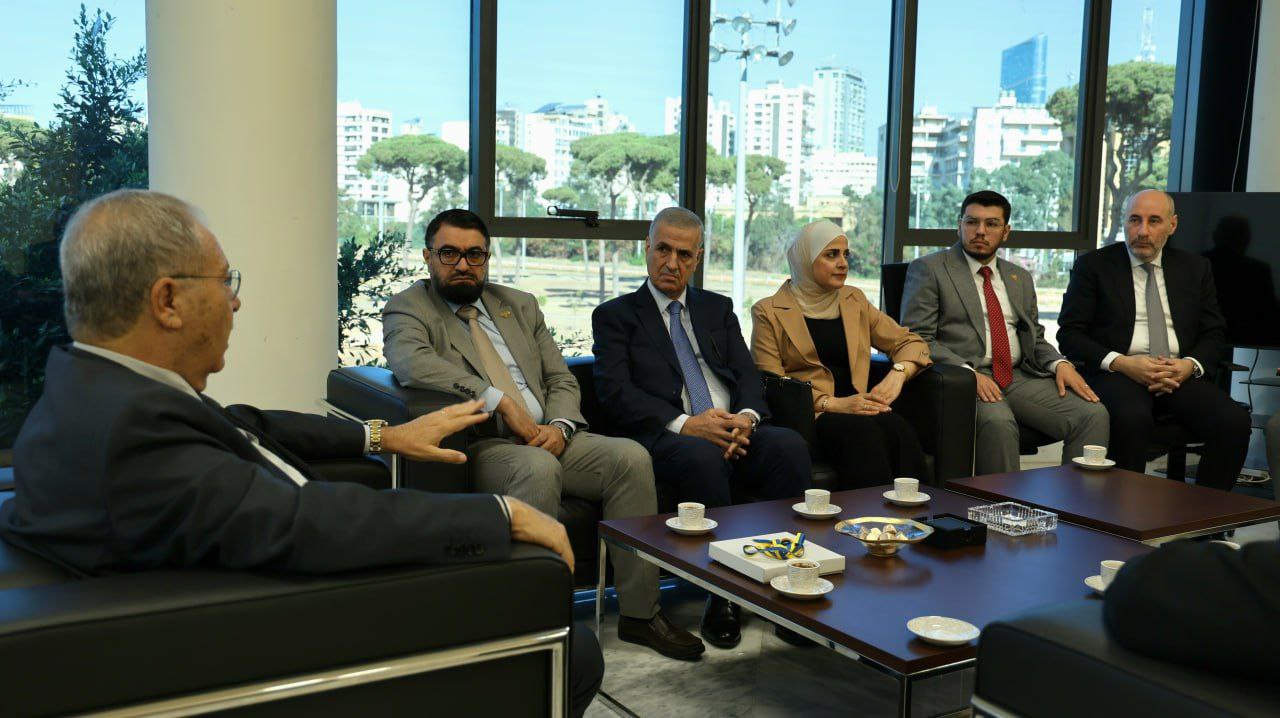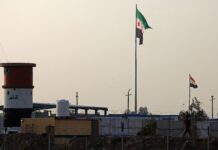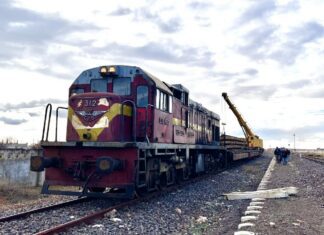
A high-level Syrian judicial delegation arrived in Beirut on October 14 to discuss the status of Syrian detainees in Lebanese prisons, a long-standing issue tied to years of political and security turmoil between the two countries.
Syrian Justice Minister Mazhar al-Wais led the delegation, which met with Lebanese Deputy Prime Minister Tarek Mitri and Justice Minister Adel Nassar. The talks focused on legal cooperation and the possibility of transferring certain detainees to Syria, according to statements released by both governments.
The Syrian Ministry of Justice said in an earlier statement that the visit aimed to “support joint efforts to lift the injustice against detainees and achieve justice that preserves their dignity and rights.” Wais described the issue of Syrian detainees as “a top priority,” noting that discussions would continue until “the suffering of detainees and their families comes to an end.”
Planned Visits to Roumieh Prison
Speaking at a joint press conference, Mitri confirmed that arrangements were underway for members of the Syrian delegation to visit Roumieh Prison, Lebanon’s largest detention facility, where many Syrians are held. “This is a normal diplomatic procedure,” Mitri said, adding that any embassy has the right to meet with its citizens in custody.
Mitri emphasized that the talks focused solely on Syrian detainees and that the situation of Lebanese inmates would be handled separately. Lebanese authorities estimate that hundreds of Syrians are detained across the country, many without formal charges or under accusations dating back to the Syrian conflict’s earlier years.
Wais also raised the issue of “fugitives from the ousted regime” allegedly residing in Lebanon, signaling that Damascus may seek extradition for individuals wanted on political or security charges. He said both sides agreed to “strengthen cooperation on security and judicial matters” while respecting national sovereignty.
Toward a New Judicial Framework
Lebanese Justice Minister Adel Nassar told reporters that the two countries were finalizing a judicial cooperation agreement to regulate the handling of detainees and related legal cases. “We are in an advanced stage of drafting the agreement,” Nassar said. “It excludes crimes such as murder or rape but provides a framework for resolving many pending cases.”
Nassar described the meetings as “constructive and positive,” highlighting progress on information-sharing regarding cross-border security incidents and unsolved assassinations. He said the agreement seeks to streamline legal procedures while ensuring compliance with both Lebanese and Syrian law.
Wais said the cooperation reflects “a convergence of views” between Beirut and Damascus and takes into account Syria’s recent legal and constitutional changes. “We are building an agreement on justice and mutual respect,” he said.
Broader Implications for Bilateral Relations
The talks come amid renewed efforts to normalize relations between Syria and Lebanon after years of strained ties following the fall of the Assad regime. Analysts see the detainee discussions as a test of trust between the two governments as they navigate complex legal, political, and humanitarian challenges.
Both sides described the tone of the meetings as cooperative. AsWais stated in Beirut, “Justice and human dignity are the goals we share.”








